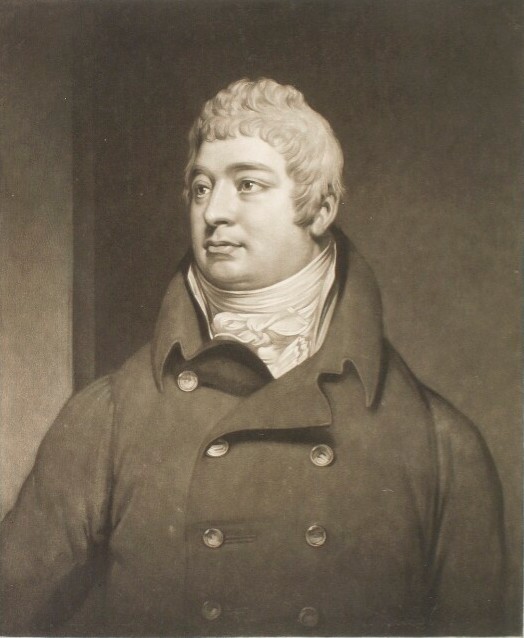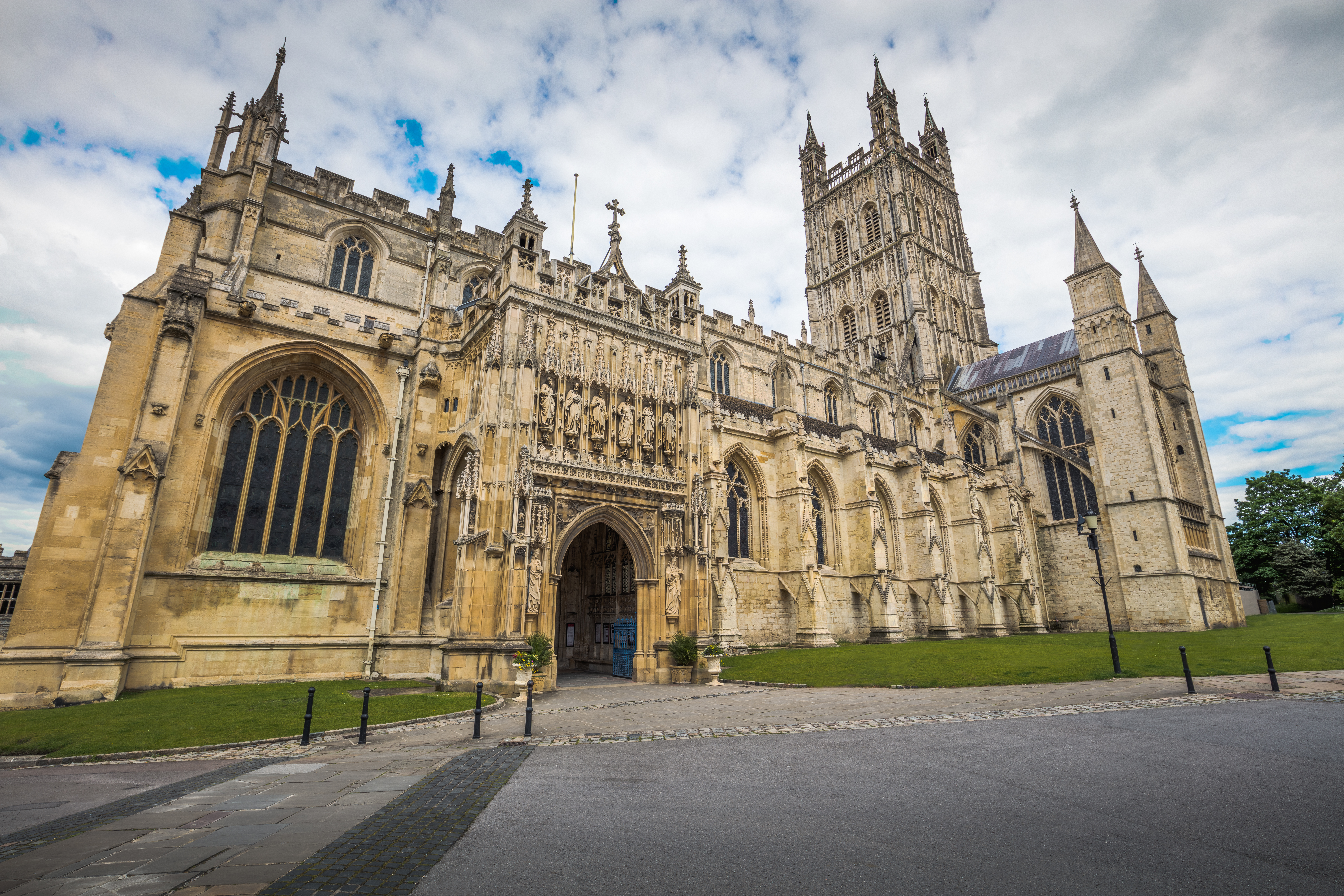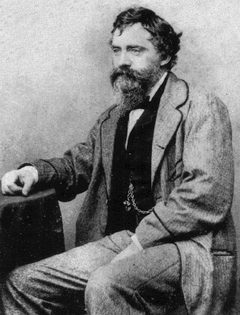|
Sir Berkeley Guise, 2nd Baronet
Sir Berkeley William Guise, 2nd Baronet (14 July 1775 – 23 July 1834) of Highnam Court in the parish of Churcham, Gloucestershire, was a British landowner and Whig Member of Parliament (United Kingdom), Member of Parliament. Origins He was the eldest son of Sir John Guise, 1st Baronet (1733–1794), of Highnam Court, whom he succeeded in 1794, inheriting Highnam Court. He also inherited the Gloucestershire estates of Elmore Court, the original seat of the Guise family, and Rendcomb, on the death in 1807 of his cousin Jane Guise, wife of Shute Barrington (1734–1826), Bishop of Durham. Career He was educated at Eton College (1791) and at Christ Church, Oxford (1794). In 1801 he was appointed verderer and deputy warden of the Forest of Dean, which office he retained until his death. In 1807 he was appointed Sheriff of the City of Gloucester and in 1813 as Mayor of Gloucester. He was commissioned as a Captain (British Army and Royal Marines), captain in the North Gloucestershire ... [...More Info...] [...Related Items...] OR: [Wikipedia] [Google] [Baidu] |
Gloucester
Gloucester ( ) is a cathedral city, non-metropolitan district and the county town of Gloucestershire in the South West England, South West of England. Gloucester lies on the River Severn, between the Cotswolds to the east and the Forest of Dean to the west; it is sited from Monmouth, from Bristol, and east of the England and Wales border, border with Wales. Gloucester has a population of around 132,000, including suburban areas. It is a port, linked via the Gloucester and Sharpness Canal to the Severn Estuary. Gloucester was founded by the Roman Empire, Romans and became an important city and ''Colonia (Roman), colony'' in AD 97, under Nerva, Emperor Nerva as ''Glevum, Colonia Glevum Nervensis''. It was granted its first charter in 1155 by Henry II of England, Henry II. In 1216, Henry III of England, Henry III, aged only nine years, was crowned with a gilded iron ring in the Chapter House of Gloucester Cathedral. Gloucester's significance in the Middle Ages is unde ... [...More Info...] [...Related Items...] OR: [Wikipedia] [Google] [Baidu] |
UK MPs 1807–1812
The United Kingdom of Great Britain and Northern Ireland, commonly known as the United Kingdom (UK) or Britain, is a country in Northwestern Europe, off the coast of European mainland, the continental mainland. It comprises England, Scotland, Wales and Northern Ireland. The UK includes the island of Great Britain, the north-eastern part of the island of Ireland, and most of List of islands of the United Kingdom, the smaller islands within the British Isles, covering . Northern Ireland shares Republic of Ireland–United Kingdom border, a land border with the Republic of Ireland; otherwise, the UK is surrounded by the Atlantic Ocean, the North Sea, the English Channel, the Celtic Sea and the Irish Sea. It maintains sovereignty over the British Overseas Territories, which are located across various oceans and seas globally. The UK had an estimated population of over 68.2 million people in 2023. The capital and largest city of both England and the UK is London. The cities o ... [...More Info...] [...Related Items...] OR: [Wikipedia] [Google] [Baidu] |
Members Of The Parliament Of The United Kingdom For English Constituencies
Member may refer to: * Military jury, referred to as "Members" in military jargon * Element (mathematics), an object that belongs to a mathematical set * In object-oriented programming, a member of a class ** Field (computer science), entries in a database ** Member variable, a variable that is associated with a specific object * Limb (anatomy), an appendage of the human or animal body ** Euphemism for penis * Structural component of a truss, connected by nodes * User (computing), a person making use of a computing service, especially on the Internet * Member (geology), a component of a geological formation * Member of parliament * The Members, a British punk rock band * Meronymy, a semantic relationship in linguistics * Church membership, belonging to a local Christian congregation, a Christian denomination and the universal Church * Member, a participant in a club or learned society A learned society ( ; also scholarly, intellectual, or academic society) is an organizati ... [...More Info...] [...Related Items...] OR: [Wikipedia] [Google] [Baidu] |
Gloucestershire Militia Officers
Gloucestershire ( , ; abbreviated Glos.) is a ceremonial county in South West England. It is bordered by Herefordshire to the north-west, Worcestershire to the north, Warwickshire to the north-east, Oxfordshire to the east, Wiltshire to the south, Bristol and Somerset to the south-west, and the Welsh county of Monmouthshire to the west. The city of Gloucester is the largest settlement and the county town. The county is predominantly rural, with an area of and a population of 916,212. After Gloucester (118,555) the largest distinct settlements are Cheltenham (115,940), Stroud (26,080), and Yate (28,350). In the south of the county, the areas around Filton and Kingswood are densely populated and part of Bristol built-up area. For local government purposes Gloucestershire comprises a non-metropolitan county, with six districts, and the unitary authority area of South Gloucestershire. South Gloucestershire Council is a member of the West of England Combined Authority. Glouce ... [...More Info...] [...Related Items...] OR: [Wikipedia] [Google] [Baidu] |
1834 Deaths
Events January–March * January 1 – Zollverein (Germany): Customs charges are abolished at borders within its member states. * January 3 – The government of Mexico imprisons Stephen F. Austin in Mexico City. * January – The Wilmington and Raleigh Railroad is chartered in Wilmington, North Carolina. * February 3 – Wake Forest University is founded as the Wake Forest Manual Labor Institute in Wake Forest, North Carolina. * February 12 – Freed American slaves from Maryland form a settlement in Cape Palmas, it is named the Republic of Maryland. * February 13 – Robert Owen organizes the Grand National Consolidated Trades Union in the United Kingdom. * March 6 – York, Upper Canada, is incorporated as Toronto. * March 11 – The United States Survey of the Coast is transferred to the Department of the Navy. * March 14 – John Herschel discovers the open cluster of stars now known as NGC 3603, observing from the Cape of Good Hope. * March 28 – ... [...More Info...] [...Related Items...] OR: [Wikipedia] [Google] [Baidu] |
1775 Births
Events Summary The American Revolutionary War began this year, with the first military engagement on April 19 Battles of Lexington and Concord on the day after Paul Revere's ride. The Second Continental Congress took various steps toward organizing an American government, appointing George Washington commander-in-chief (June 14), Benjamin Franklin postmaster general (July 26) and creating a Continental Navy (October 13) and a Marine force (November 10) as landing troops for it, but as yet the 13 colonies have not declared independence, and both the British (June 12) and American (July 15) governments make laws. On July 6, Congress issues the Declaration of the Causes and Necessity of Taking Up Arms and on August 23, King George III of Great Britain declares the American colonies in rebellion, announcing it to Parliament on November 10. On June 17, two months into the colonial siege of Boston, at the Battle of Bunker Hill, just north of Boston, British forces are vic ... [...More Info...] [...Related Items...] OR: [Wikipedia] [Google] [Baidu] |
John Wright Guise
General Sir John Wright Guise, 3rd Baronet (20 July 1777 – 1 April 1865) was a British Army general. Life Guise was born at Elmore, Gloucestershire, the second son of John Guise of Highnam Court, who was created a baronet in 1783, and died in 1794; his mother was the daughter and heiress of Thomas Wright. He was appointed ensign in the 70th (Surrey) Regiment of Foot on 4 November 1794, and was transferred the year after to the 3rd Foot Guards, later the Scots Guards, in which he became lieutenant and captain in 1798, captain and lieutenant-colonel in 1805, and regimental first major in 1814. Guise served with his regiment in the Ferrol Expedition, Vigo, and Cadiz in 1800, in Egypt in 1801, in Hanover in 1805–06, and accompanied it to Portugal in 1809. He was present at the Battle of Bussaco, and commanded the light companies of the guards, with some companies of the 95th Rifles attached, at the Battle of Fuentes de Oñoro. He commanded the first battalion 3rd Guards in the Pen ... [...More Info...] [...Related Items...] OR: [Wikipedia] [Google] [Baidu] |
Thomas Gambier Parry
Thomas Gambier Parry, J.P., D.L., (22 February 1816 – 28 September 1888) was a British artist and art collector. He is best remembered for his development of the Gambier Parry process of fresco painting, and for forming the significant collection of early Italian paintings and objects that his heirs gave to the Courtauld Institute of Art in London, where many are displayed in the Courtauld Gallery. Thomas Gambier Parry is the father of composer Hubert Parry. Life Gambier Parry's parents, Richard and Mary Parry of Banstead, Surrey, died when he was young and he was raised by his maternal aunts and uncles, the Gambiers, among them James Gambier, 1st Baron Gambier. His grandparents were Admiral Samuel Gambier, 1752-1813 and Jane Mathew, 1759-. He was educated at Eton and Trinity College, Cambridge. He moved to Highnam Court, Gloucestershire when he was 21 and, in 1839, he married, firstly, Anna Maria Isabella Fynes-Clinton, daughter of Henry Fynes Clinton. Only two of the ... [...More Info...] [...Related Items...] OR: [Wikipedia] [Google] [Baidu] |
Sir John Wright Guise, 3rd Baronet
General Sir John Wright Guise, 3rd Baronet (20 July 1777 – 1 April 1865) was a British Army general. Life Guise was born at Elmore, Gloucestershire, the second son of John Guise of Highnam Court, who was created a baronet in 1783, and died in 1794; his mother was the daughter and heiress of Thomas Wright. He was appointed ensign in the 70th (Surrey) Regiment of Foot on 4 November 1794, and was transferred the year after to the 3rd Foot Guards, later the Scots Guards, in which he became lieutenant and captain in 1798, captain and lieutenant-colonel in 1805, and regimental first major in 1814. Guise served with his regiment in the Ferrol Expedition, Vigo, and Cadiz in 1800, in Egypt in 1801, in Hanover in 1805–06, and accompanied it to Portugal in 1809. He was present at the Battle of Bussaco, and commanded the light companies of the guards, with some companies of the 95th Rifles attached, at the Battle of Fuentes de Oñoro. He commanded the first battalion 3rd Guards in the Pen ... [...More Info...] [...Related Items...] OR: [Wikipedia] [Google] [Baidu] |
Gloucestershire East (UK Parliament Constituency)
East Gloucestershire, formally the Eastern division of Gloucestershire and often referred to as Gloucestershire Eastern, was a United Kingdom constituencies, parliamentary constituency in Gloucestershire, represented in the House of Commons of the United Kingdom, House of Commons of the Parliament of the United Kingdom. It elected two Member of Parliament (United Kingdom), Members of Parliament (MPs) using the Plurality-at-large voting, bloc vote system. The constituency was created when the Reform Act 1832, Great Reform Act split Gloucestershire into eastern and West Gloucestershire (UK Parliament constituency), western divisions, with effect from the 1832 United Kingdom general election, 1832 general election. Under the Redistribution of Seats Act 1885, East Gloucestershire was abolished from the 1885 United Kingdom general election, 1885 election, when the former eastern and western divisions were replaced by five new single-seat county constituencies: Cirencester (UK Parliam ... [...More Info...] [...Related Items...] OR: [Wikipedia] [Google] [Baidu] |




